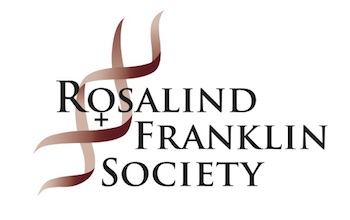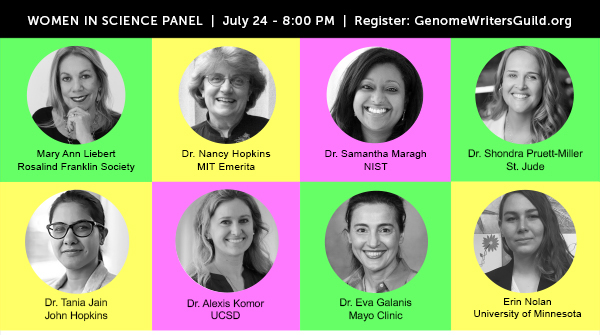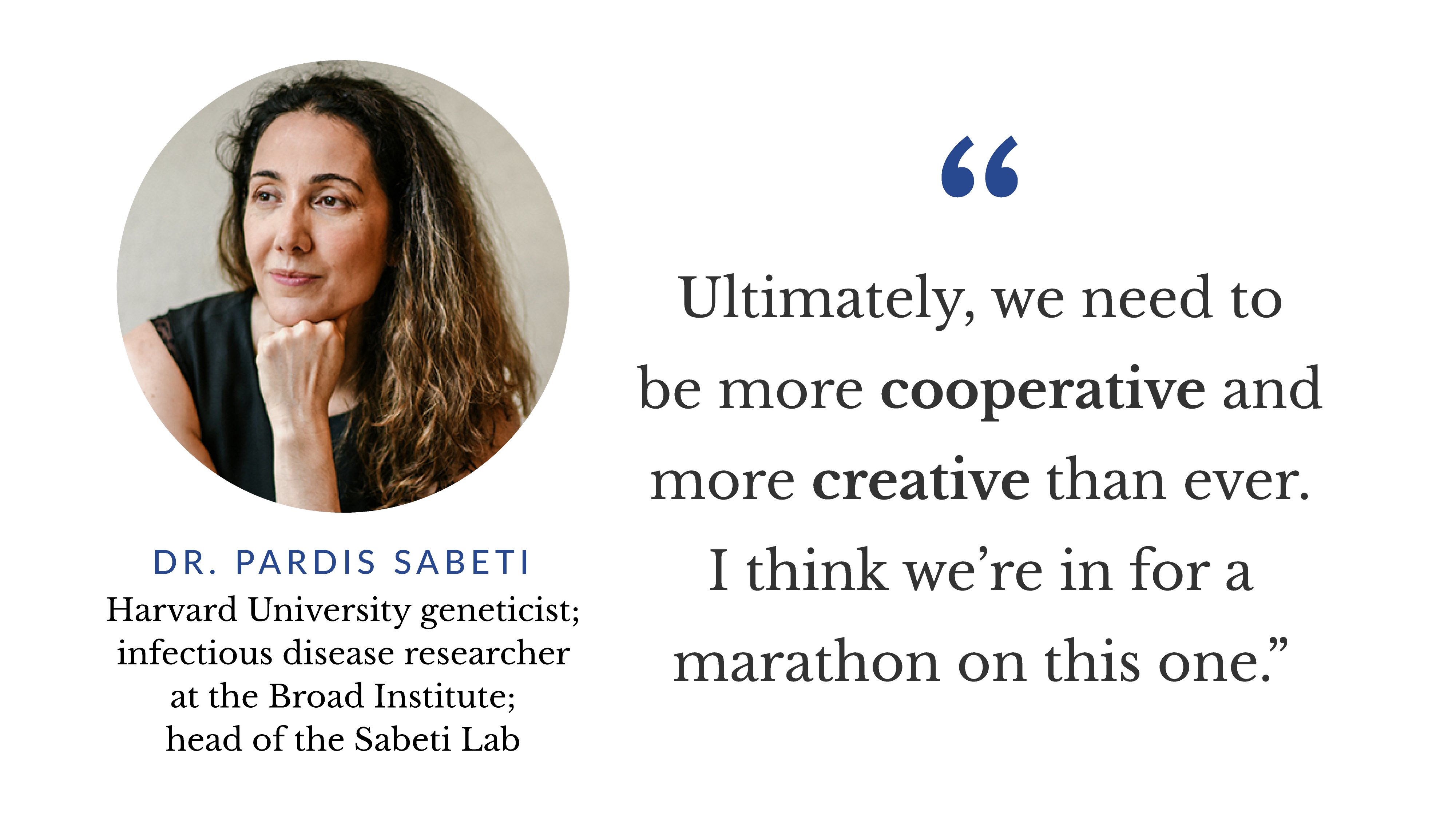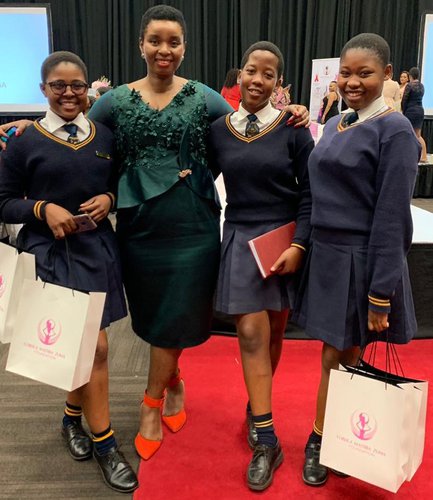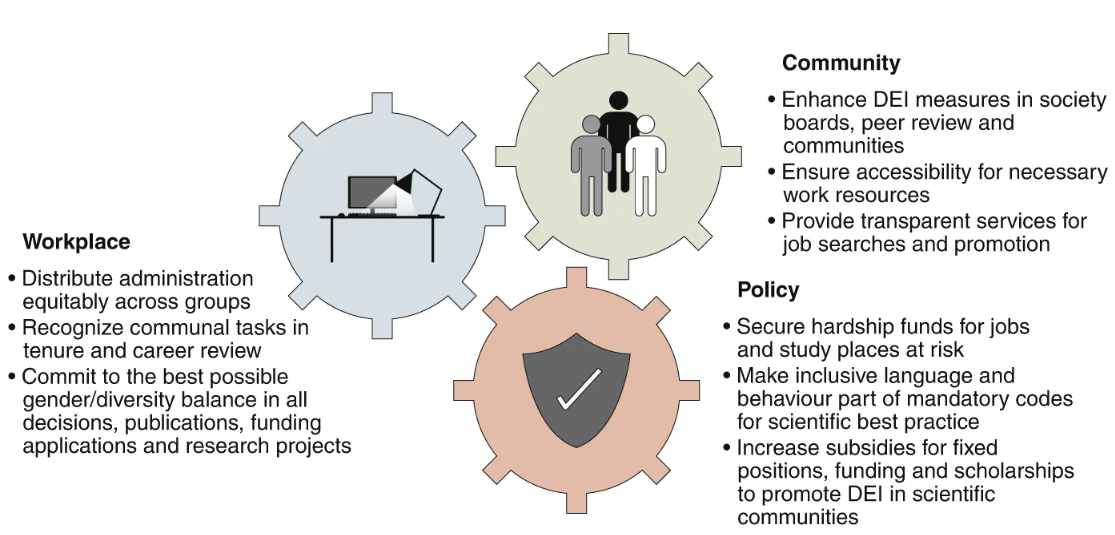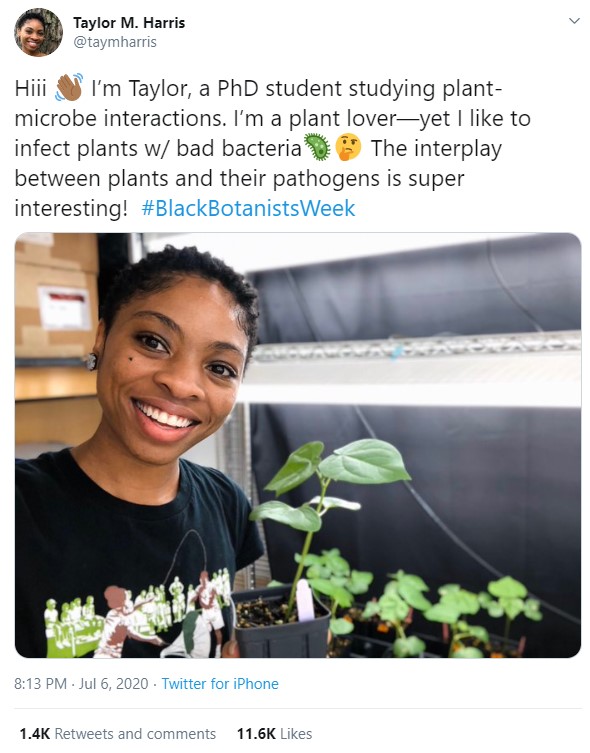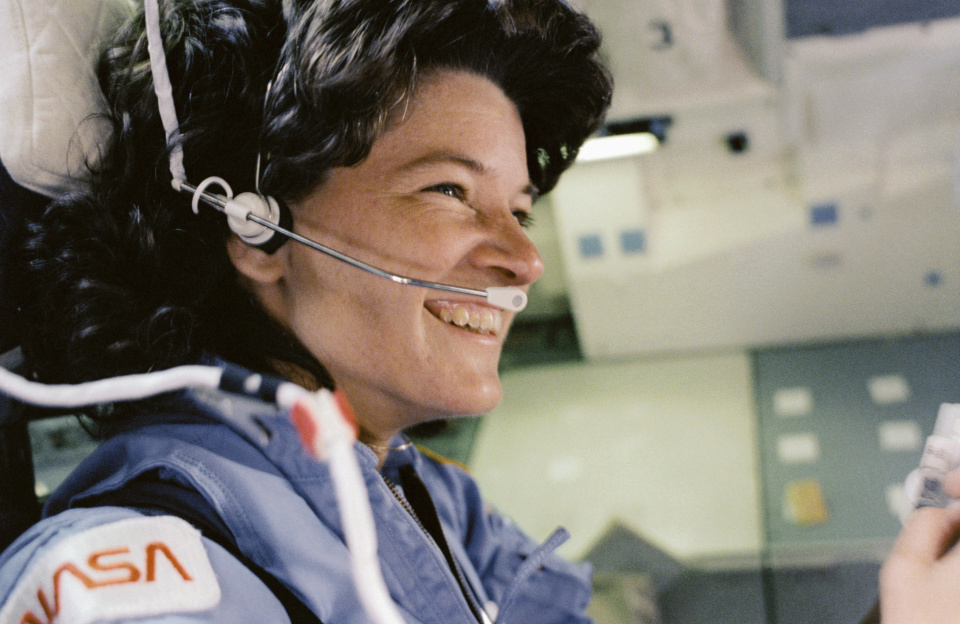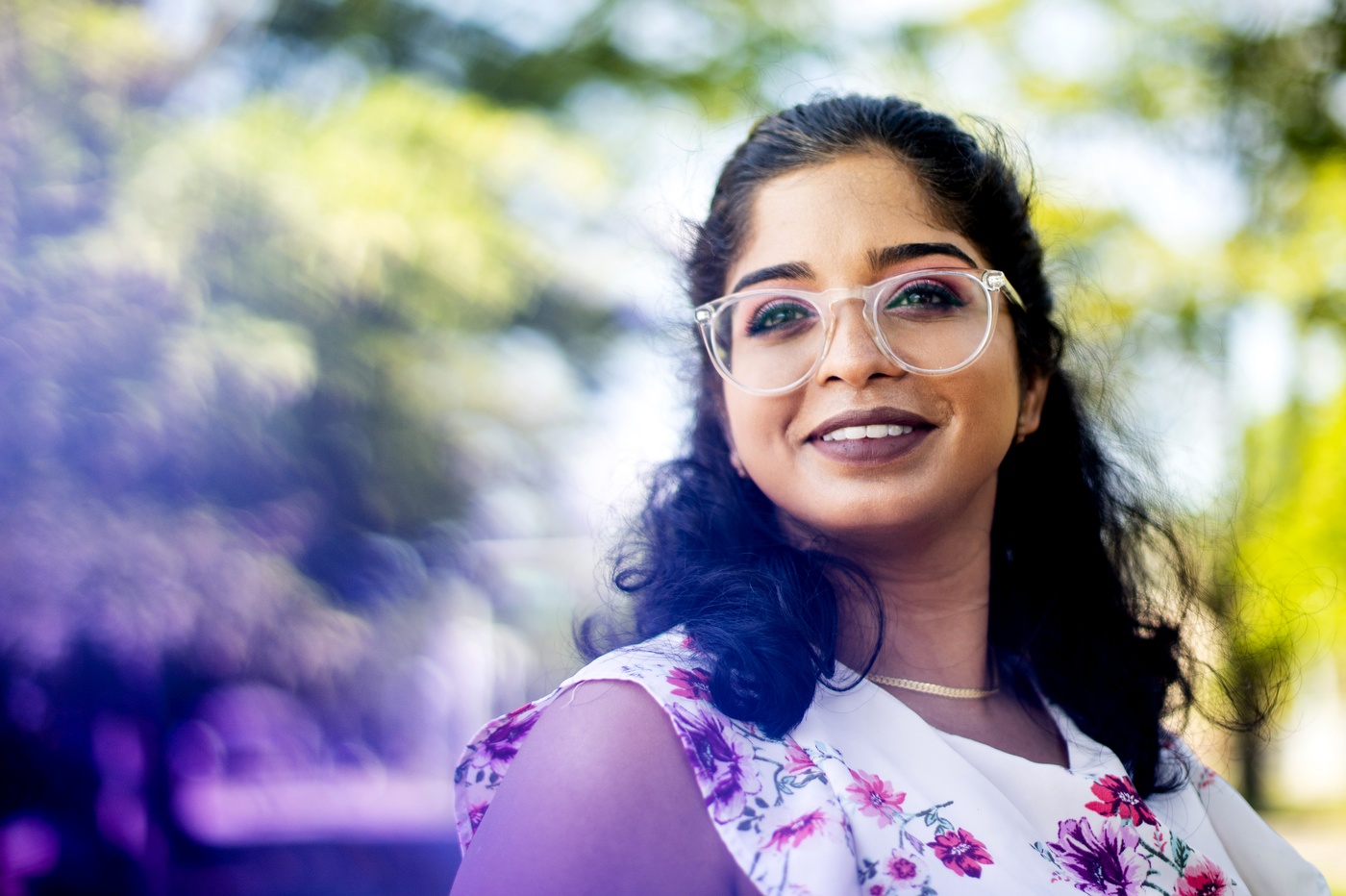(the new!) RFS Briefings - August 19 2020Dear Colleagues, I am pleased to include another issue of RFS Briefings with some timely and encouraging updates on women in science. In particular, we want to highlight the launch of President Rita Colwell’s new book, “A Lab of One’s Own,” and the exclusive first interview with her upon its release earlier this month. See below for more news about women in science Please continue to share important news and opportunities with us so that we may share it with you, and others who are committed to supporting the careers of exceptional women in science. With regards in these trying times,
Meet Women in STEMCongratulations to Dr. Alexis Komor for receiving the Rosalind Franklin medal (awarded by the Rosalind Franklin Society) during the Genome Writers Guild Conference 2020. It is a well deserved award for her transformative work on base editing, a new approach to genome editing that enables the direct, irreversible chemical conversion of one target DNA base into another in a programmable manner, without requiring double-stranded DNA backbone cleavage. Check out the Women in Science Panel that was held during the conference, with Dr. Nancy Hopkins, the biologist featured in the film Picture a Scientist, Mary Ann Liebert, founder of the Rosalind Franklin Society, and leading scientists. Click here to watch the video!
Heroes on the front line: Dr. Pardis Sabeti. One of the world's leading geneticists shares her thoughts on COVID-19: “The big difference between COVID and Ebola is that it’s in our own backyard. We’re developing diagnostics that can be done at home, and mobile applications that do contact tracing in various ways and can help health care workers share data in real time. (...) The thing about outbreaks is they involve biology, medicine, public health, psychology – so many things you need to be able to know and process. You can use the pandemic to teach.” Dr. Sabeti is a member of the RFS Advisory Board. Read more on Blue Cross Blue Shield of Massachusetts
Marika Ziesack and Shannon Nangle are co-leading the Circe project at the Wyss Institute, a system that uses microbes to turn greenhouse gases into specific polymers with applications in packaging, personal care products, and dairy alternatives. “We want to end the notion that CO2 is a waste and start using it as a resource,” said Marika in a recent interview This South African nuclear physicist is breaking down barriers for girls in science. Senamile Masango was the first African woman to conduct a first African-led experiment at CERN, one of the world's largest centres for scientific research. She’s been named as one of South Africa’s top Black women scientists under 35. She launched a foundation in 2014 to address challenges that are faced by women in science, and to provide leadership and role models for young people. Read more on the Global Citizen.
We don’t waste fellowships on women”: Microbiologist Rita Colwell on sexism in academia. Microbiologist Rita Colwell, best known for her pioneering research on cholera, and the first female director of the National Science Foundation, recently published a new book about her decades of experience fighting against sexism in the world of science. Read an excerpt from “A Lab of One’s Own: One Woman’s Personal Journey Through Sexism and Science” on Marketplace. 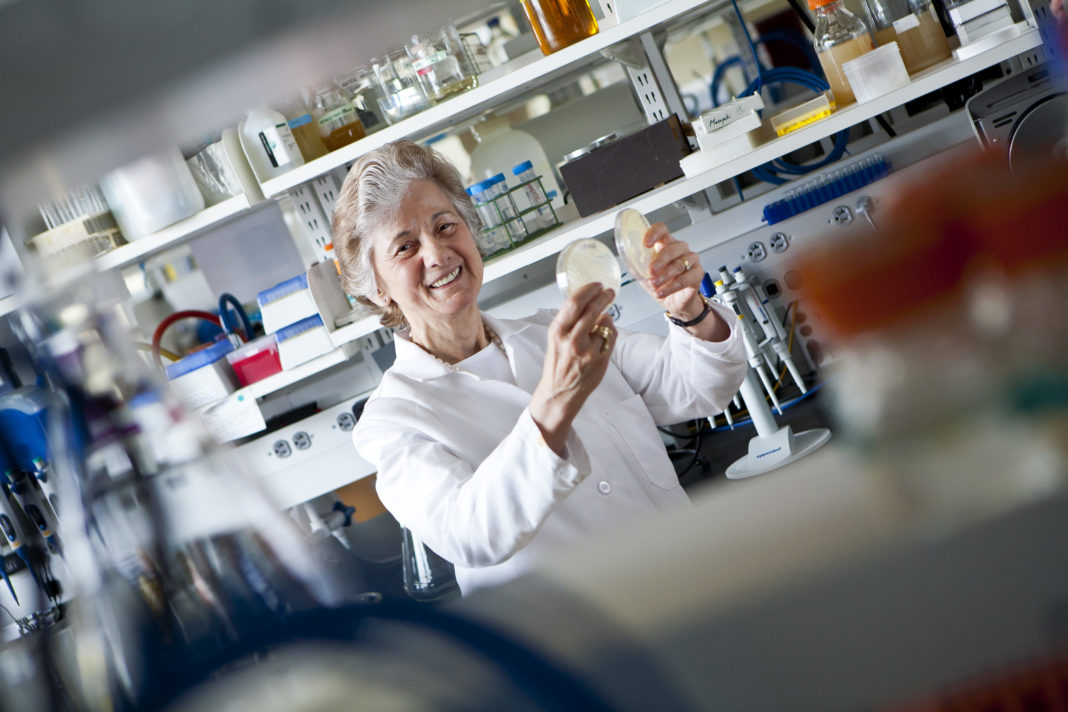
Portrait of Rita Colwell, PhD, in her laboratory for the Maryland Pathogen Research Institute in the Department of Cell Biology & Molecular Genetics [John T. Consoli/University of Maryland]. Read an exclusive interview on Genetic Engineering News. The dark side of being a female shark researcher. Every year, there are complaints on social media about how few women or people of color are featured on Shark Week, and how they’re presented when they do appear. According to Dr. Catherine Macdonald, in one show, a woman with a Ph.D. was referred to by her first name, while a male student Shark Week included in the episode (who did not have a Ph.D.) was called “Dr. [Lastname]” The film Radioactive shows how Marie Curie was a ‘woman of the future’. Marie Curie was the first woman to win a Nobel Prize, the first person and only woman to win two Nobel Prizes, and the only person to win them in two different scientific fields, physics (1903) and chemistry (1911). But while the new film Radioactive rightly celebrates Madame Curie’s brilliance, it also reveals her courage as a female scientist struggling with the male-dominated scientific community. Read more on Scientific American. This physician has battled epidemics, quakes, and poverty in Haiti. Now, she's taking on COVID-19. The need for women to take an increasing role in Haiti’s health care has long been identified as a key to economic development, and after 4 decades of practicing medicine in her native country, Marie Marcelle Deschamps is seen by many as an icon and a role model. “She is inspiring,” said Sandra Lamarque, head of mission in Haiti for Doctors Without Borders, in an article for Science News. DiversityThe Biotechnology Innovation Organization (BIO) announced the BIOEquality Agenda which aims to attack the systemic inequality, injustice and unfair treatment of women and communities of color through the positive force of biotechnology. Dr. Michelle McMurry-Heath, President and CEO, announced the 3 pillars of change: 1) Expand opportunity for women and other underrepresented populations, 2) Invest in the current and next generation of scientists, and 3) Promote health equity. Watch the video. ‘It’s like we’re going back 30 years’: how the coronavirus is gutting diversity in science. 19 researchers from around the world are warning that job losses during the COVID-19 pandemic might pose “disproportionate existential threats” to researchers from under-represented groups, including those who are financially disadvantaged, people from minority ethnic backgrounds and women. Read more on Nature News.
Three ideas for the Academic Leadership to improve diversity, equity and inclusion (DEI) in the scientific workplace, at community and institute levels, as well as in broader policy and decision-making. Neuroscience, astronomy, animal behavior, and more: Black scientists are showcasing their research on social media. Recently, several social media movements have emerged to celebrate Black academics across a variety of disciplines, including #BlackInAstro (June 22 - 26), #BlackBotanistsWeek (July 6 - 11), #BlackInAnimalBehaviour (July 23 - 27), #BlackInNeuro July 27 - August 2), and #BlackinChem (August 10-15) Read more on Massive Science.
Senior U.S. lawmaker wants National Academies to scrutinize racism in science: Representative Eddie Bernice Johnson (D–TX) wrote a letter to Marcia McNutt, president of the National Academy of Sciences, asking her to convene a “distinguished panel” that would conduct “a rigorous and thoughtful analysis of the extent to which the U.S. scientific enterprise perpetuates systemic inequities to the detriment of society as a whole, as well as how those inequities are manifested.” Read more on Science News. Discussions by leading womenHitting the Books: Why women make better astronauts. Kate Greene spent four months in a simulated Martian environment on Hawaii’s Mauna Loa, as a member of NASA’s 2013 HI-SEAS project. In Once Upon a Time I Lived on Mars, Greene examines humanity’s yearning for space travel and explores the human element that will allow us to thrive on the Red Planet once we get there. In an excerpt, Greene posits what NASA might look like today had the agency not gotten its start as an elite boy’s club. Read more on Engadget. NASA / reuters She wants to restore the public's confidence in science: Vyshnavi Karra, a graduate student of the chemical engineering doctoral program at Northeastern, has just published a book that examines the intersection of science and government and how that relationship has evolved over the years. Karra believes that scientists should give greater consideration to how their findings could be interpreted by a lay audience, and how people’s understanding—or misunderstanding—of their work could affect how it spreads on social media, which is ripe for the spread of misinformation. Read more on News@Northwestern.
The ‘female’ brain: why damaging myths about women and science keep coming back in new forms. “A century after the birth of Rosalind Franklin, co-discoverer of the structure of DNA, it’s sadly time to once again shed light on the prejudices about women’s brains and abilities,” writes Gina Rippon, author of The Gendered Brain: The new neuroscience that shatters the myth of the female brain. Read more on The Conversation. We can’t let STEM skills become a casualty of COVID-19. “We need our scientists now more than ever to help us develop the high-value industries that will secure our future jobs and prosperity. We can’t let our future STEM skills become a casualty of COVID-19, or we will pay for it in decades to come,” writes Dr. Cathy Foley, Chief Scientist of CSIRO for The Conversation. Curious about genome editing? How it impacts our lives? Check out this video from the Genome Writers Guild conference 2020, Ask a Scientist, with Dr. Alison Van Eenennaam of the University of California-Davis and Dr. Anil K. Challa of the University of Alabama at Birmingham. Career and personal developmentTips to ward off impostor syndrome: Whether you’re a student, a postdoc, a staff scientist or a faculty member, ‘impostor syndrome’ makes every research challenge and setback a little harder to navigate. In two career columns for Nature, one by Paris Grey, and one by Maisie Keogh, researchers share their tips on how to ward off impostor syndrome. New podcast provides digital mentoring tips for early career researchers. The ‘Your Digital Mentor’ podcast aims to kickstart the conversation around mentoring and other aspects of research culture, with a special focus on low and middle-income countries (LMIC). Read more on Cambridge Network. EntrepreneurshipNational Women's Business Council releases findings on women's participation in America's Seed Fund. “NWBC is committed to advocating for women in business, including STEM innovators and entrepreneurs, and this study will help inform the Council’s policy recommendations to Congress, the White House, and SBA set to be released later this year,” said NWBC Women in STEM Subcommittee Chair Monica Stynchula in a press release.
|
